On August 26, 1825, before the first session of the 19th Congress began, James Allison, Jr. (J) of Pennsylvania's 16th district resigned. A special election was held to fill the resulting vacancy.
| Elections in Pennsylvania |
|---|
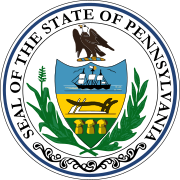 |
On August 26, 1825, before the first session of the 19th Congress began, James Allison, Jr. (J) of Pennsylvania's 16th district resigned. A special election was held to fill the resulting vacancy.
| Candidate | Party | Votes [1] | Percent |
|---|---|---|---|
| Robert Orr, Jr. | Jacksonian | 5,157 | 56.7% |
| Abner Lacock | Independent | 3,944 | 43.3% |
Orr took his seat on December 5, 1825, at the start of the First Session of the 19th Congress. [2]
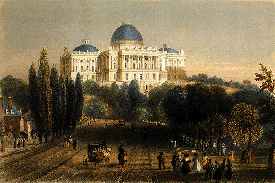
The 19th United States Congress was a meeting of the legislative branch of the United States federal government, consisting of the United States Senate and the United States House of Representatives. It met in Washington, D.C. from March 4, 1825, to March 4, 1827, during the first two years of the administration of U.S. President John Quincy Adams. The apportionment of seats in the House of Representatives was based on the Fourth Census of the United States in 1820. The Senate had a majority of Jackson Men, while the House had an Anti-Jackson (pro-Adams) majority.
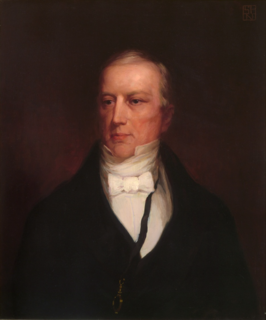
The 1826 and 1827 United States House of Representatives elections were held at various dates in each state in 1826 and 1827 during John Quincy Adams's presidency.
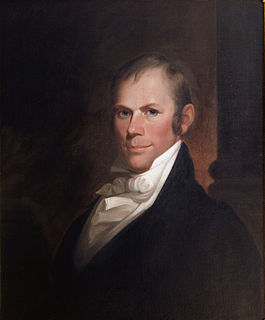
The 1818 and 1819 United States House of Representatives elections were held at various dates in different states between April 1818 and August 1819 during President James Monroe's first term. Also, newly admitted Alabama elected its first representatives in September 1819.

The 1816 and 1817 United States House of Representatives elections were held at various dates in different states between April 1816 and August 1817.

The 1806 and 1807 United States House of Representatives elections were held at various dates in each state between April 29, 1806 and August 4, 1807 during Thomas Jefferson's second term with the new Congress meeting on October 26, 1807.
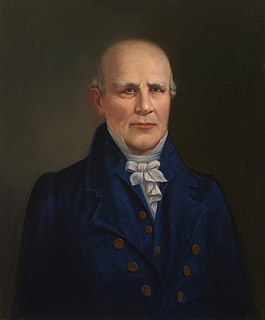
The 1804 and 1805 United States House of Representatives elections were held at various dates in each state between April 24, 1804 and August 5, 1805. The Congress first met on December 2, 1805. The elections occurred at the same time as President Thomas Jefferson's re-election.
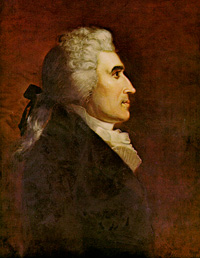
The 1796 and 1797 United States House of Representatives elections took place in the various states took place between August 12, 1796, and October 15, 1797. The first session was convened on May 15, 1797, at the proclamation of the new President of the United States, John Adams. Since Kentucky and Tennessee had not yet voted, they were unrepresented until the second session.

The 1790 and 1791 United States House of Representatives elections, took place in the middle of President George Washington's first term. While formal political parties still did not exist, coalitions of pro-Washington (pro-Administration) representatives and anti-Administration representatives each gained two seats as a result of the addition of new states to the union.
The 1826 and 1827 United States Senate elections were elections that had the majority Jacksonians gain a seat in the United States Senate.

The 1826 United States House of Representatives elections in New York were held from November 6 to 8, 1826, to elect 34 U.S. Representatives to represent the State of New York in the United States House of Representatives of the 20th United States Congress.

During the 15th Congress, there were two special elections in the 6th district of Pennsylvania, both held in the year 1818. The 6th district at that time was a plural district with two seats, both of which became vacant at different times in 1818. The first vacancy was caused by John Ross (DR) resigning on February 24, 1818 and the second was caused by Samuel D. Ingham (DR) resigning July 6.

On February 21, 1818, Representative Peterson Goodwyn (DR) of Virginia's 19th district died in office. A special election was held to fill the resulting vacancy.

On January 12, 1826, Patrick Farrelly (J) of Pennsylvania's 18th district died in office. A special election was held to fill the resulting vacancy

On May 1, 1826, Alexander Thomson (J) of Pennsylvania's 13th district resigned. A special election was held to fill the resulting vacancy on October 10, 1826, the same day as the general elections to the 20th Congress.

At some point in 1826, Joseph Hemphill (J) of Pennsylvania's 2nd district resigned from Congress. A special election was held to fill the resulting vacancy.

On August 14, 1826, Henry Wilson (J) of Pennsylvania's 7th district died. A special election was held to fill the resulting vacancy on October 10, 1826.

In the 1826 elections in Pennsylvania, a tie vote occurred in the 2nd district. As a result, no candidate won in that district and a special election was held on October 9, 1827.